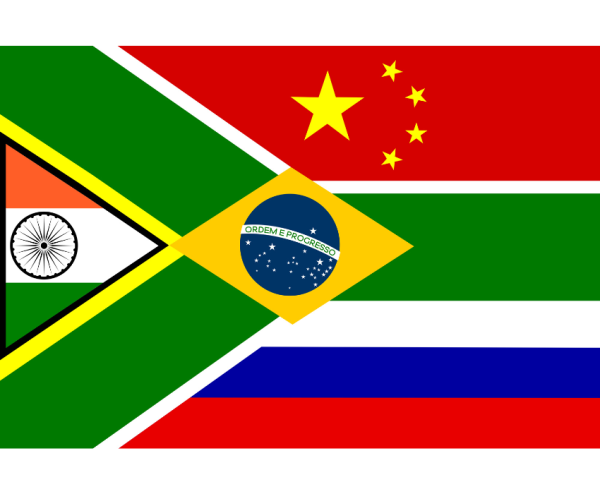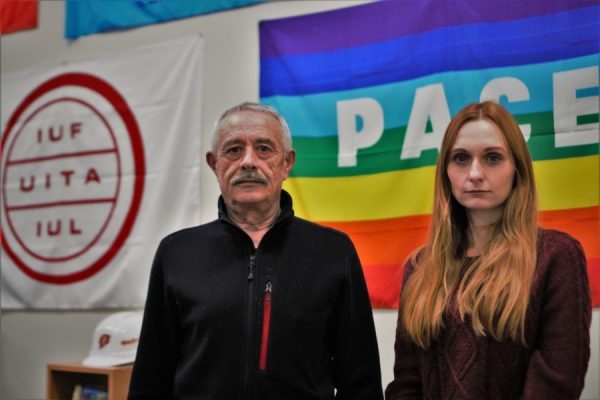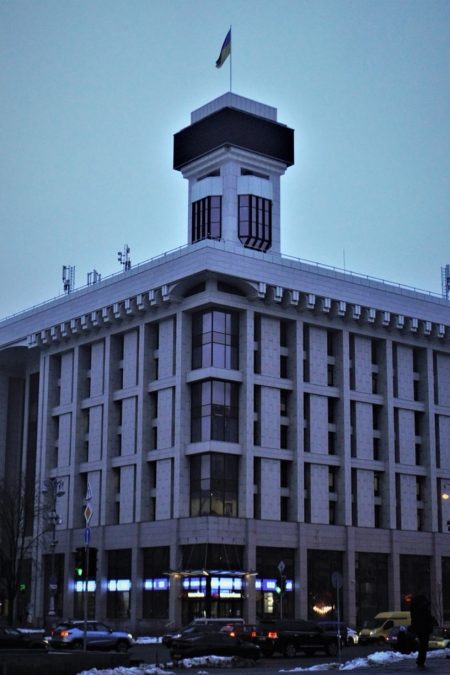What value remains in the concept of imperialism?
The idea of imperialism was classically associated with competitive internecine battles between a few great European powers. Their internal capitalist-crisis tendencies spurred an unprecedented geographical expansion, facilitated by major financial markets, which in turn ran into various limits.
In that context, colonial military power was typically deployed to conquer territory and establish formal state management and, later, informal neo-colonial political-economic power relations.
In our current age, that imperialist formula remains highly relevant, with an additional element that became more vital after World War II and has been utterly impossible to avoid since the 1990s: the post-war economic, socio-cultural, geopolitical and military dominance of the United States, increasingly exercised through Western-headquartered multilateral institutions whose operations favour the interests of the largest multinational corporations and especially financiers.
Imperialist multilateral institutions include the World Bank and International Monetary Fund (IMF), founded in 1944, and later the World Trade Organisation (WTO, originally the 1948 General Agreement on Tariffs and Trade).
The Bretton Woods financial institutions dramatically expanded during the ’80s and ’90s in the wake of commercial bank internationalisation, along with the Bank for International Settlements as a league of central banks dominated by those of the United States, Great Britain, Europe and Japan.
In relation to the most difficult problem — climate change — the United Nations Framework Convention on Climate Change has generally served the main corporate fossil fuel and industrial interests.
As witnessed in Dubai in early December, the annual global climate summits are under imperialist control and hence fail to compel cuts in greenhouse gas emissions to sustainable levels — or to even phase out fossil fuels — while refusing a logical principle: polluter-pays reparations.
A large network of status quo NGOs and philanthro-capitalists have become vital enablers and legitimators of climate imperialism, as is also the case in nearly every other (silo-delimited) sectoral arena of global public policy.
Additional informal networks of imperial power can be found at the Davos-based World Economic Forum, which has taken on the mantle of a futuristic brain trust, one formerly adorning the Bilderberg Group and US Council on Foreign Relations.
Likewise, working to shape public consciousness, the corporate media and numerous think tanks with specialist influences are responsible for ideological and strategic aspects of imperialist regime maintenance, now located in capital cities across the world.
But states remain vital, and military, geopolitical and economic-managerial collaborations between powerful capital cities remain the crucial factor behind imperialism’s durability.
Since the ’70s, the G7 bloc has often coordinated Western state power, depending upon the conjuncture.
The US Pentagon-centred North Atlantic Treaty Organisation, NATO, has been revived in recent years, while the Five Eyes intelligence alliance (involving Great Britain, Canada, Australia and New Zealand) coordinates Anglophone military interests.
And the Quadrilateral Security Dialogue fuses Japanese, Indian, Australian and US forces in Asia, mainly against China’s expansion.
Sometimes, imperial powers use the UN Security Council for broad-based control — albeit recognising divisive contradictions associated with geopolitical antagonisms — and allow the UN General Assembly votes on the “rules-based order” mainly for the sake of legitimacy.
Most of this imperial power requires comprador elite alliances with victim-country neoliberal leaders in business and most governments.
Indeed, since the world financial meltdown of the late 2000s, and again during the COVID-19 pandemic, there has emerged a vital new feature of imperial assimilation, especially associated with the Brazil-Russia-India-China-South Africa (BRICS) bloc’s rise to the global stage.
These middle-sized economies are playing greater roles not only in multilateral institutions, but in the G20 group — hosted in 2023 by India, 2024 by Brazil and 2025 by South Africa.
The utilisation of regional middle-power allies to complement the US military agenda is not new, with Brazil, Turkey and, especially, Israel deserving longstanding titles of sub-imperialist.
This was the term Ruy Mauro Marini coined to characterise Washington-Brasilia relations in 1965, which was later to be broadly characterised within the category semi-periphery by Immanuel Wallerstein’s world-systems school.
The merits of sub-imperialism to US power were articulated by independent presidential candidate Robert F Kennedy Jnr.
In an interview on November 5, RFK Jr pledged that if elected in late 2024, he would “Make sure that we have the resources that are critical to us, including the oil resources that are critical to the world, that we have a strike capacity to make sure to be able to protect those. And Israel is critical, and the reason it’s critical is because it’s a bulwark for us in the Middle East. It’s almost like having an aircraft carrier in the Middle East.”
That is a terribly crude, albeit honest, version of Washington’s desired sub-imperial allies. A more general reflection is in capitalism’s multilateral management, such as when economic stress rose in 2008–11 and 2020–22 and both imperial and sub-imperial regimes used the G20 and IMF to coordinate monetary expansion, bank bailouts and rapidly-lowered interest rates.
How then should we understand the economic and geopolitical contradictions these institutions now confront?
Major shifts in capital accumulation patterns are reflected in quite dynamic imperialist/sub-imperialist arrangements.
Since the 1970s, when capitalist crisis tendencies reemerged, East Asia became an attractive investment option for firms facing lower profit rates in the West. The globalisation of trade, investment and finance accelerated, spurred by the advent of petrodollars (oil economy reserves) and Eurodollars, which centralised money in core Western financial havens.
Then, US/British-led neoliberal financial deregulation, starting in the early ’80s, permitted an explosive growth in credit, financial product innovations and speculative capital.
Soaring interest rates — imposed from Washington in 1979 to address US inflation — attracted more of the West’s investable funds into the financial circuits of capital.
And the European Union economy became a more coherent, less fragmented unit of capitalist power, with a single currency by the early 1990s.
Correspondingly, multilateral institutions’ control functions in relation to debtor countries mainly served the interests of multinational corporations and banks, especially once the ’80s debt crisis transferred policy power to the World Bank and IMF.
This financial component of imperialism is once again a profound problem in the wake of many countries’ COVID-19 debt encumbrances.
In this context, various longstanding geopolitical pressures and military tensions became more acute during the 2010s — mostly evident as full-blown wars in Ukraine and the Middle East at present, but potentially also in conflicts liable to break out at any time in Central Asia, the Himalayan Mountains, the South China Sea and the Korean peninsula.
These divisions can certainly escalate quickly, submerging broader mutual interests and creating a “camp” mentality — the West versus a China/Russia-led so-called multipolar alignment, which in turn have profoundly affected anti-imperialist sensibilities across the world.
The conflicts have extended to labour migration, trade and finance, as witnessed by the rise of xenophobia and right-wing critiques of “globalism”.
These were crystallised in right-wing populist victories in three 2016 votes: Brexit, Donald Trump in the US, and Rodrigo Duterte in the Philippines, followed by other votes including in Brazil, Italy and now Argentina and the Netherlands.
Underlying the lack of faith in liberal elite politics is not only mismanagement of what they concede is a so-called “polycrisis” unfolding in diverse areas of multilateral responsibility, but also the decline of most globalisation ratios (especially trade/GDP) after 2008 resulting in a “deglobalisation” or what The Economist terms “slowbalisation” and the latest UN Conference on Trade and Development (UNCTAD) report refers to as “stall-speed” growth.
In addition to these openly-admitted flaws in the system, the US-China trade war, starting in 2017, and the 2022 Russian invasion of Ukraine reflect further contradictions and limits within capital’s geographical expansion.
But many such conflicts — born of internal capitalist contradictions — are not really inter-imperial in character. They reflect a rogue character within sub-imperialism — from which Russian president Vladimir Putin crossed the line by invading Crimea in 2014 and the rest of Ukraine in 2022 — and within imperialism — for example when the US Treasury took extreme measures against Russia’s global financial integration, kicking Moscow out of the main bank transaction system and seizing several hundred billion dollars of its carelessly-scattered official and oligarch assets.
It is difficult to contemplate contemporary imperialism without at least touching on all these dynamics and mentioning the institutions undergirding imperial power.
We need conceptual tools — especially sub-imperialism, although the term is very alienating for Third World nationalists — to attack each of these processes.
This will, in the process, allow us to transcend the simplistic anti-imperialist rendition of “my enemy’s enemy is my friend”, so often found in so-called campist logic.
So, the formulations we use are increasingly important, for example in contesting both Russia’s invasion of Ukraine and Israel-US’ genocidal attacks, with a consistent line of analysis.




